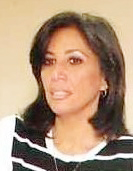
Egyptians living abroad headed to polling stations on Wednesday to vote in a popular referendum over the country’s first post revolution constitution. In Egypt meanwhile, controversy over the proposed constitution deepened. Rival mass protests were held nationwide on Tuesday ahead of next Saturday’s vote on the draft document.
Tensions have been running high since President Mohamed Morsy issued a controversial constitutional declaration two weeks ago giving him absolute powers and shielding him from judicial review. In a televised speech late Saturday, Morsy said he was prepared to annul the article shielding him from accountability.
However, he stopped short of cancelling the referendum that has deeply polarised the country. Morsy also called for dialogue with opposition political forces to resolve the political dispute.
Most opposition groups dismissed the president’s concessions as “meaningless,” calling on Egyptians to take to the streets to protest the referendum slated for December 15. Meanwhile, only a handful of politicians from smaller political groups responded to the call for dialogue and met on Sunday with the president in a bid to iron out the differences. Judges too are divided over the referendum.
While senior State Council judges have announced that they will oversee the referendum , lower-ranked judges with the influential Judges Club insist on boycotting the vote saying “it will deepen the division.”
After two weeks of political turmoil and violent clashes last week outside the Presidential Palace in Heliopolis – that left at least six people dead and hundreds injured – opposition activists marched to the palace on Tuesday afternoon to protest the hastily-drafted constitution.
Despite the peaceful nature of the rally, the level of anger was high among protesters, many of whom complained that President Morsy was not listening to the people and had chosen to disregard their views.
“Down with the rule of the Muslim Brotherhood Supreme Guide,” the protesters chanted. “Erhal! Leave!” they shouted.
Several hundred protesters tried to break down the concrete barrier erected by the army a few days earlier. The anger at Tuesday’s protest was fuelled by a dawn attack by unknown assailants on protesters staging an occupation Tahrir Square .
Gunmen fired birdshot at the protesters, wounding nine people. The previous day, the government had announced that it would impose tax increases on a variety of goods including cigarettes and alcohol but later that night, backtracked on the decision fearing the price hikes could lead to a major eruption on the streets.
Meanwhile, Islamist supporters staged their own rallies on Tuesday outside the Al-Rashdan and Rab’aa el Adaweya Mosques in Nasr City to express their solidarity with the president.
“Morsy you are our legitimate leader,” they chanted. “The constitution, freedom and Shari’a!”
Much of this crowd’s anger was directed at opposition leaders whom Morsy had accused of siding with former regime remnants to overthrow him. “Hamdeen and Baradei, Morsy was elected by the ballot box,” the demonstrators reminded the opposition leaders who in recent weeks, have been fiercely critical of Morsy’s policies.
Demonstrators also denounced the independent media which they said had been consistent in its vilification of thep and of Islamists in recent months. Supporters of former Salafi presidential candidate Hazem Abou Ismail have occupied the Media Production City for several days to protest what they described as an anti-Islamist bias in the media.
On Tuesday, the military called for dialogue between opposition forces and Morsy to defuse the political crisis – the second such call in less than a week. In a statement posted on the Armed Forces official Facebook page, Minister of Defence Abdul Fatah Al-Sisi extended an invitation to opposition political forces, the revolutionary youth, representatives of Al-Azhar and the Church as well as labourers and farmers, to meet with the president at Olympic City in a bid to “close ranks and unify the country.”
Earlier in the week, the military had warned of “disastrous consequences if the crisis was left unresolved.” The military insisted that dialogue was the only way to break the deadlock over the constitution.
The deployment of army tanks outside major state institutions and on street corners in recent days has fuelled concerns that the country may be heading towards a military coup. Morsy’s call for the imposition of martial law to restore order and protect state institutions sent a clear message that the army had chosen to side with the Islamist president.
The call drew harsh criticism from rights groups. Human Rights Watch said Morsy should have banned military trials for civilians instead of allowing their arbitrary arrests and detentions by the military.
Despite the political turmoil, it is certain that the controversial referendum will take place as planned on the scheduled date of December 15. Opponents fear the draft, if endorsed, will undermine the rights of women and curtail civil liberties and religious freedom. If the result is a majority “No” vote, a new constituent assembly will be elected by the people.
Whatever the result of the referendum, it appears likely that the rift it has created will have long lasting effects. The repercussions of what liberals, leftists and opposition political groups describe as “presidential oppression” and the recent violence will be felt for a long while to come.



